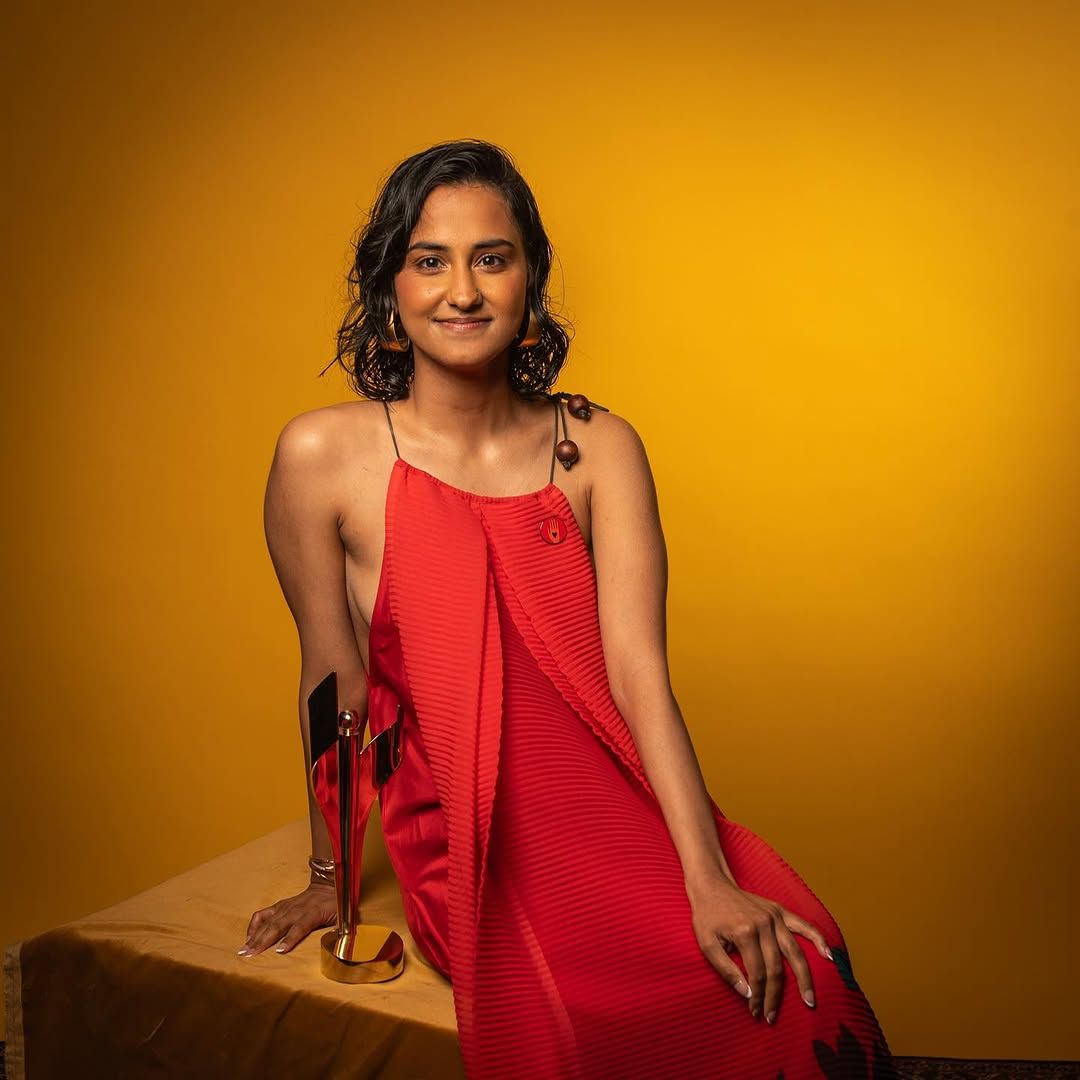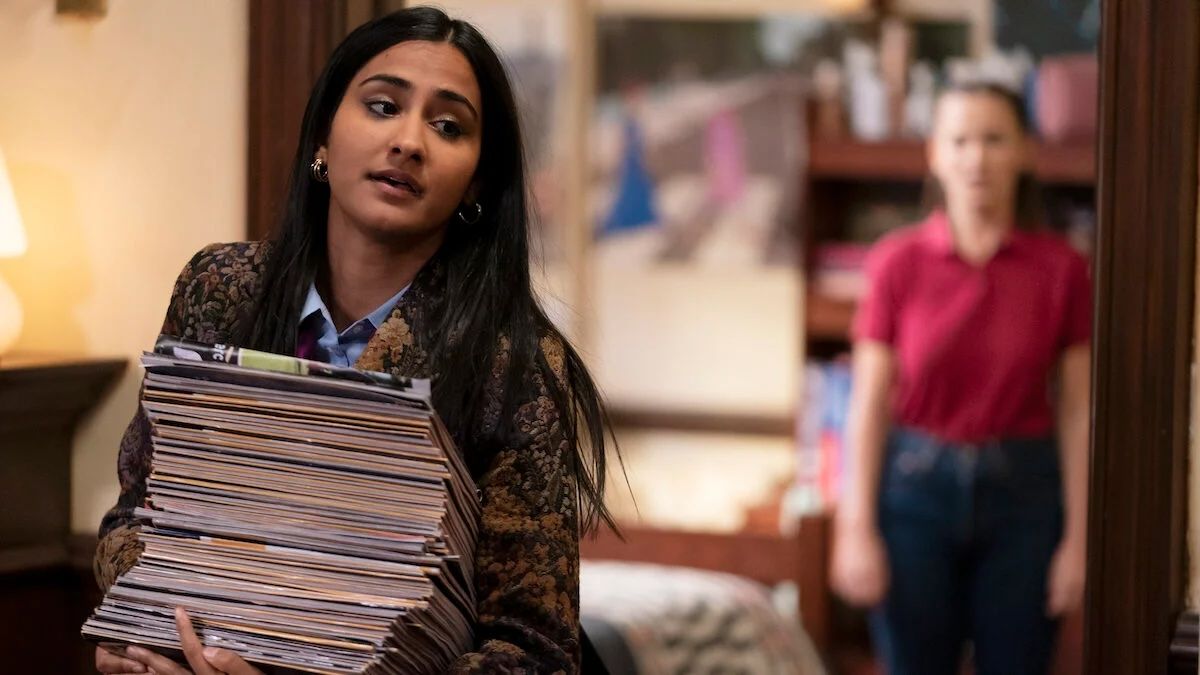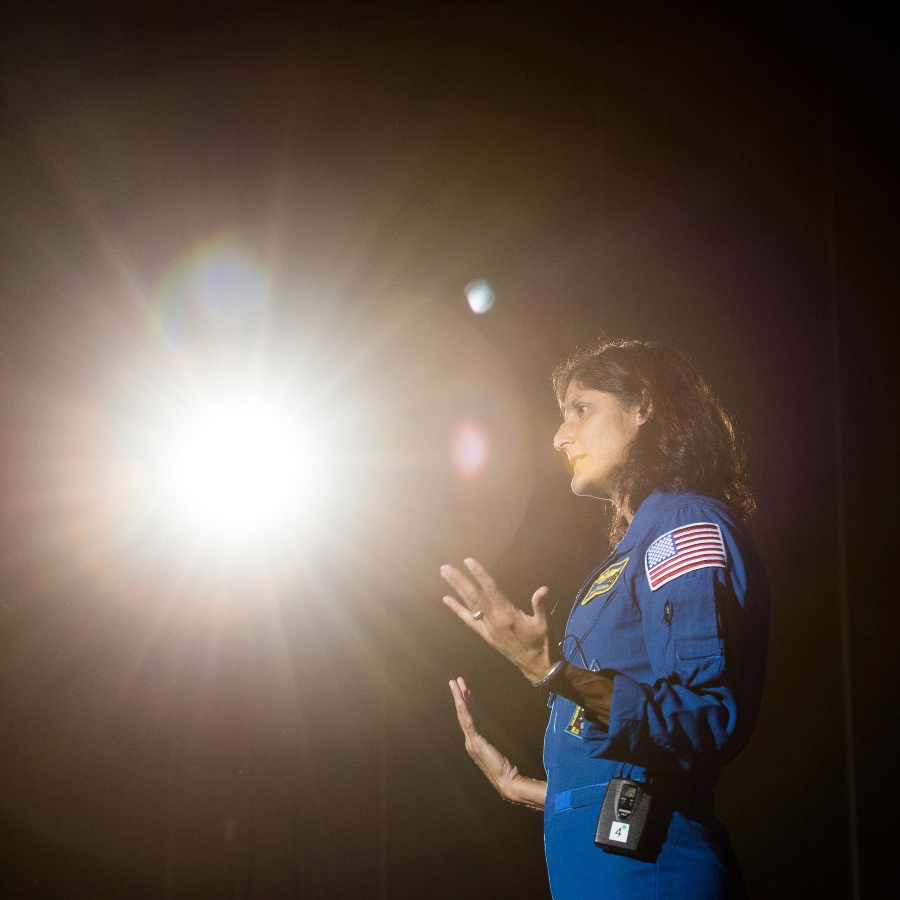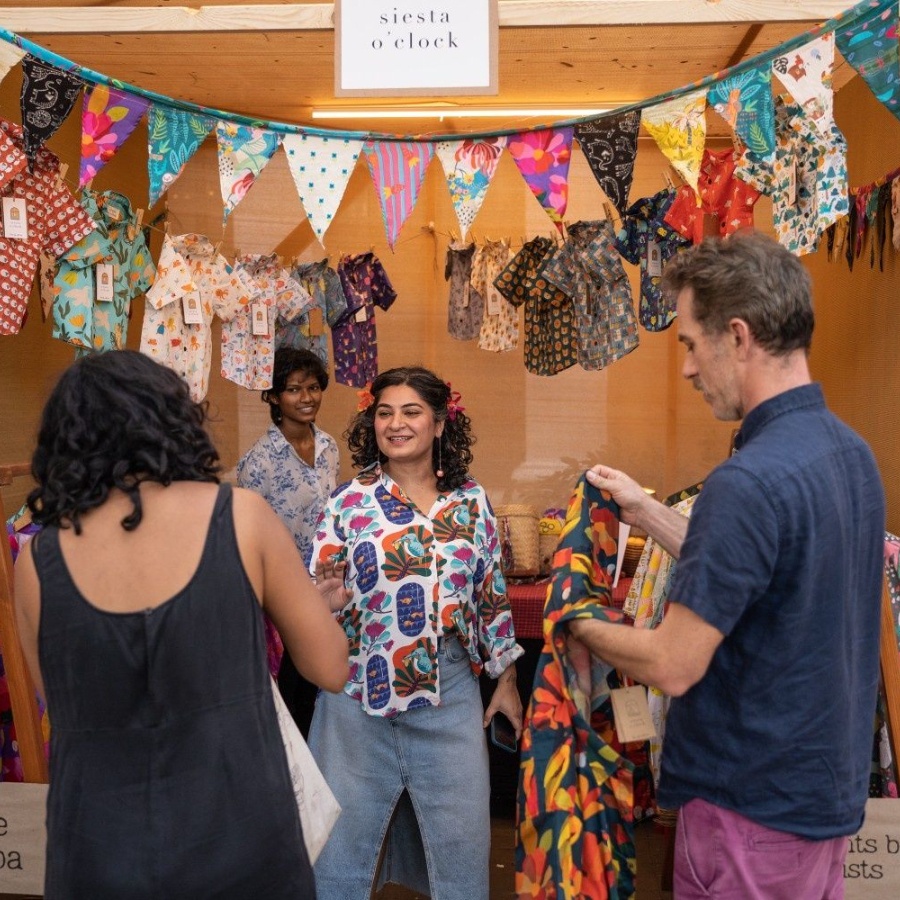Last May, at the Canadian Screen Awards, when Amrit Kaur took the stage to accept the Best Lead Performance award, she was still a relatively unknown actor. She had just played her first lead (a dual role, actually) in Pakistani-Canadian filmmaker Fawzia Mirza’s debut feature, The Queen of My Dreams, which had premiered at the Toronto International Film Festival (TIFF) in 2023. Outfitted in a breezy red Payal Khandwala dress affixed with an Artists4Ceasefire pin, she was visibly nervous. And for good reason.
Of all the people who walked up to the mic that night to accept their awards, Kaur was the only person to directly and bluntly address the war on Palestine taking place while the world watched. “It’s a scary time to be an artist. I am scared. I am scared to speak up. But this honour reminds me that I am an artist. And as an artist, it is my job to feel, and to empathise. And for those of you who are telling us artists not to speak up in fear of losing jobs, in fear of losing careers, in fear of losing reputation, you are telling us not to be artists. And I want to say to you people that I am an artist. And I refuse to sacrifice and live in the hatred of humanity. Ceasefire now. Free Palestine.”

The video quickly went viral, making headlines across North America, India and West Asia. Nerve-wracking though it may have been, the experience made the 31-year-old Canadian actor even more self-assured about how she wishes to use her platform.
On her Instagram feed, where press interviews, commercial work and BTS takes from her filmography routinely make an appearance, the viral video rests on top, pinned with pride. These days, Kaur is on television as the sex-positive Bela Malhotra on Mindy Kaling’s show Sex Lives of College Girls, which is now in its third season and available to stream on JioHotstar. Though the character seems at first to follow the same blueprint as Kaling’s other female leads (sex- and romance-crazed Indian girl lusting after white boys), it quickly becomes apparent that there’s a lot more to her. Bela has a bawdy sense of humour, supreme overconfidence, and is attracted to the comedy nerds just as much as the jocks. In the new season, she is seen uncovering and embracing new facets of her sexuality, an important evolution in the representation of young South Asian women on screen.

The Nod caught up with Kaur to discuss activism, chasing the truth and Nawazuddin Siddiqui. Edited excerpts below:
Pahull Bains: We met last year at the Canadian Screen Awards (CSAs), where I immediately clocked your Payal Khandwala dress. Can you tell us why you picked that outfit for this big moment, and what your relationship to fashion is, in terms of using it to express yourself?
Amrit Kaur: Oh man, my relationship with fashion isn’t great. I’d like it to be better. I’d like it to become an expression of myself, but sometimes I can become self-conscious about what I’m wearing or look a certain way but I like to try my best to be myself, and I think that’s really important. In terms of the dress at the CSAs, it was red, and I was doing a speech where the colour red for ceasefire was very important, so that was intentional with my Artists4Ceasefire pin.
PB: That brings me to my next question, which is about your speech. That was the highlight of the night for so many people in the audience, myself included, and I’m sure it was a nerve-racking thing to do. As an actor with a growing platform, did you make a conscious decision about how you wanted to use your voice publicly?
AK: I have consciously thought about that, and I do consider myself an activist. I think I said something that was obvious, I mean, to live in a world that focuses on love. It’s hard to be an artist, because an artist is about telling the truth. And it’s hard to tell the truth when we live in an industry that’s so full of telling lies, and money-making, and we sell ourselves short, and so I’m always on that journey, and fail often, and that was one moment of truth that I’m proud of, but it continues. And I think the other reason why people are shocked is...I don’t know, I think people don’t expect actors to be intelligent. Why aren’t actors people who are intelligent, who have an opinion?
PB: Those two words—“free Palestine”—are considered very controversial, and actors in Hollywood are suffering for saying it. Did anyone advise you against it?
AK: I didn’t ask anybody. Probably if I did ask, I would have been told otherwise. Yeah, I knew when I said that I had decided maybe I won’t work for a couple of years, but that’s okay. That doesn’t matter. I mean, telling the truth when people are dying is so, so minuscule in comparison. Such a minuscule task, really, but it was scary. And I’m happy more have spoken up. The truth scares people, and the truth has a cost, because there are so many lies, so what are we willing to sacrifice to tell the truth?
PB: Do you find it challenging to balance art and activism, especially in a world where people face economic consequences for taking a public stance on an issue.
AK: I definitely find it difficult to be myself, which is an activist. So, I think the last little while, and this is maybe not the right thing to say, I’ve resisted interviews because I find myself talking about my activism a lot more than participating in it. You know what I mean? So, this next year is about participating in my activism through acting, not necessarily any other form, but through acting and writing, because I think film and television and writing—art—is very powerful for making people see themselves. And that is activism. The root verb, the root word of activism is ‘act’, you know? So that is my choice of activism—acting. And I can be much better at that. I feel in terms of my activism and acting, I’m probably at like 5 per cent.




